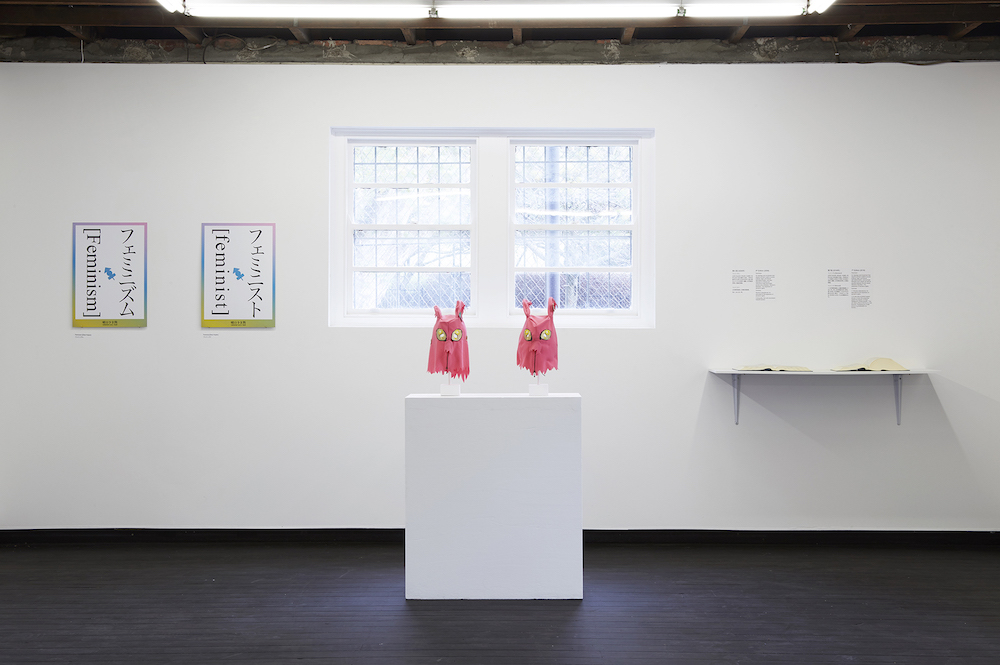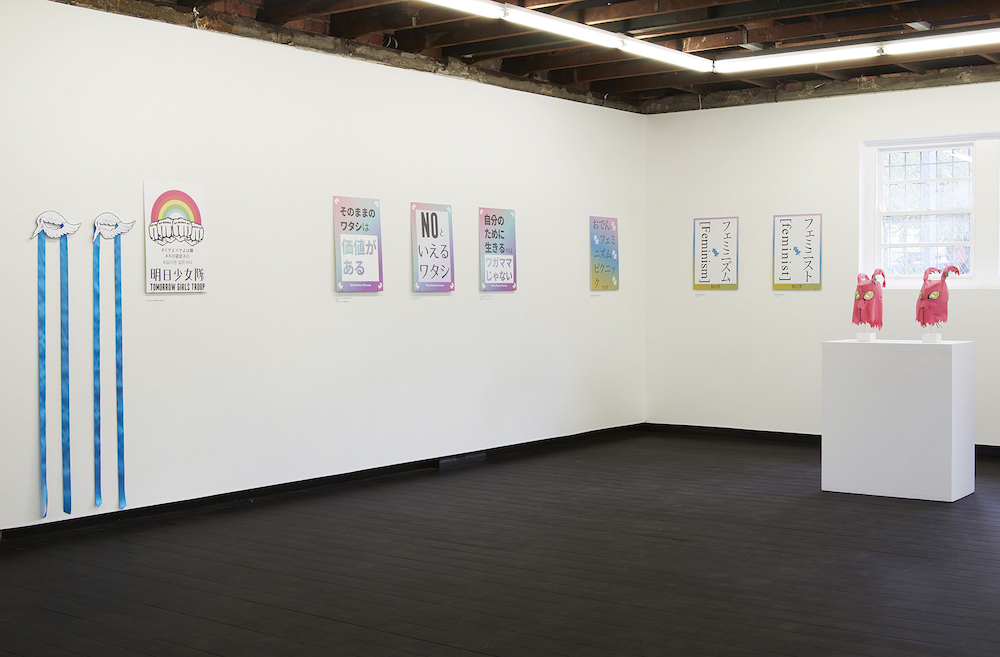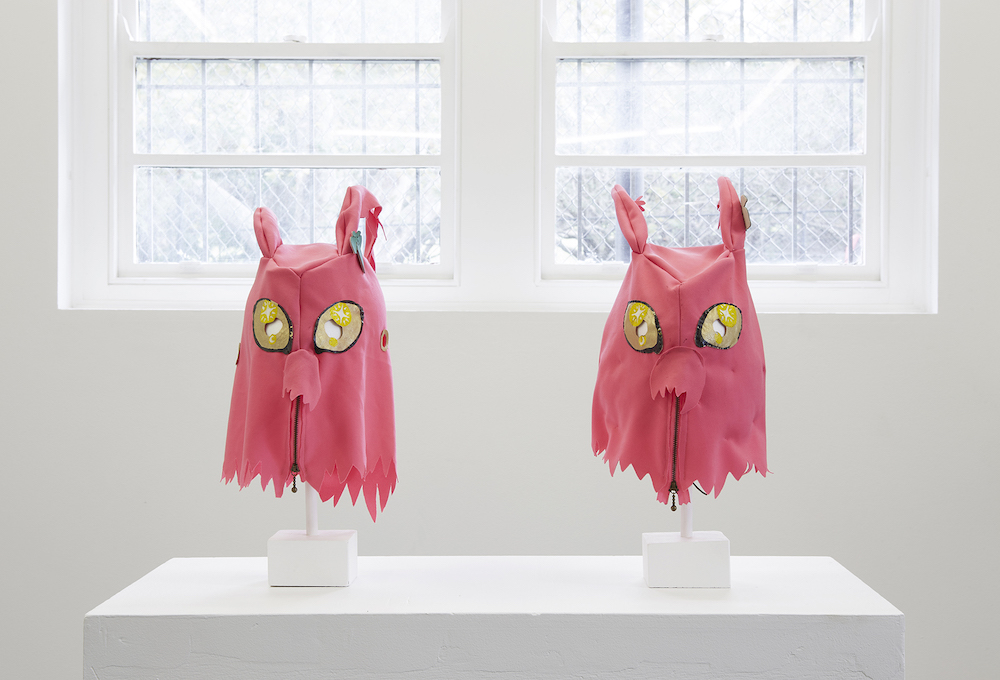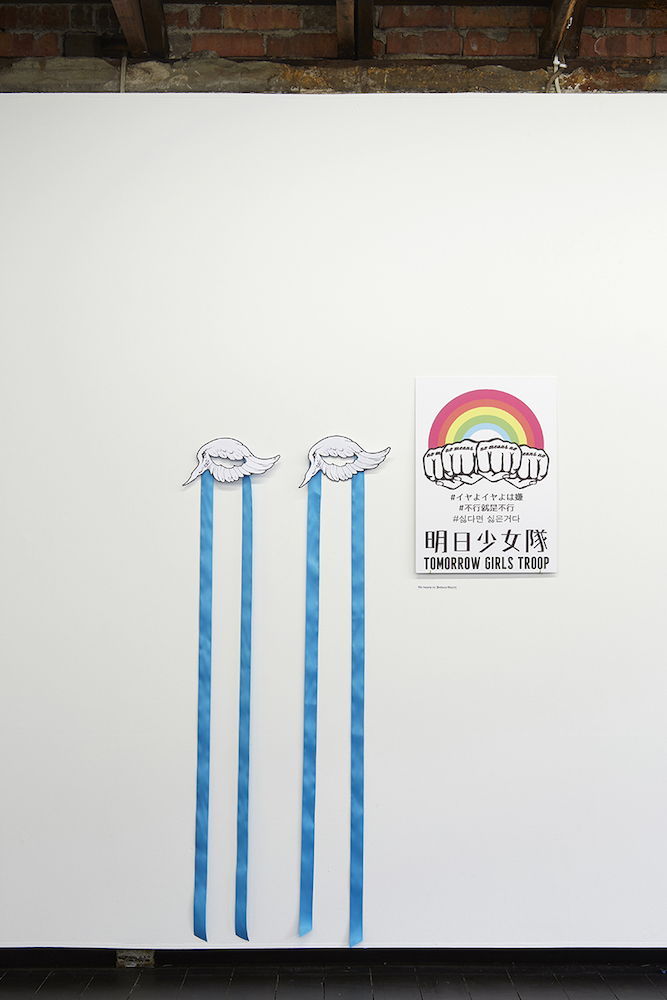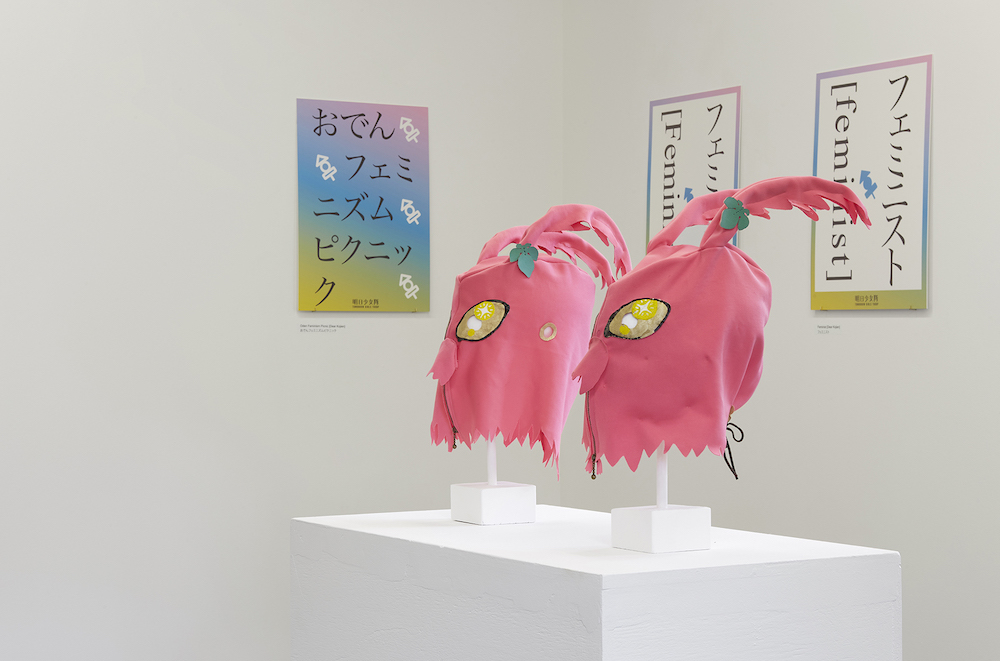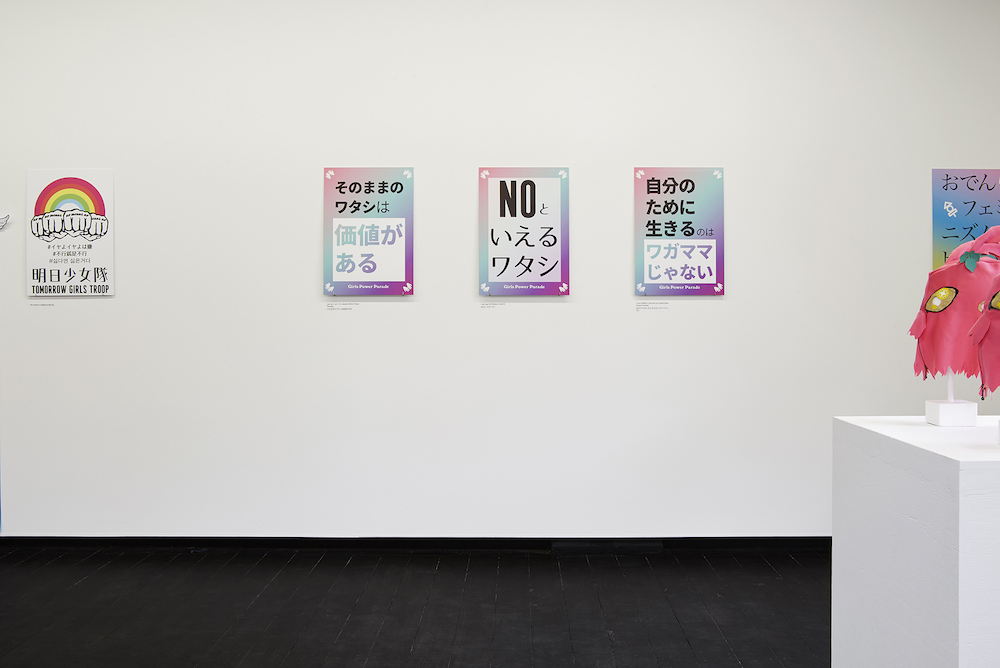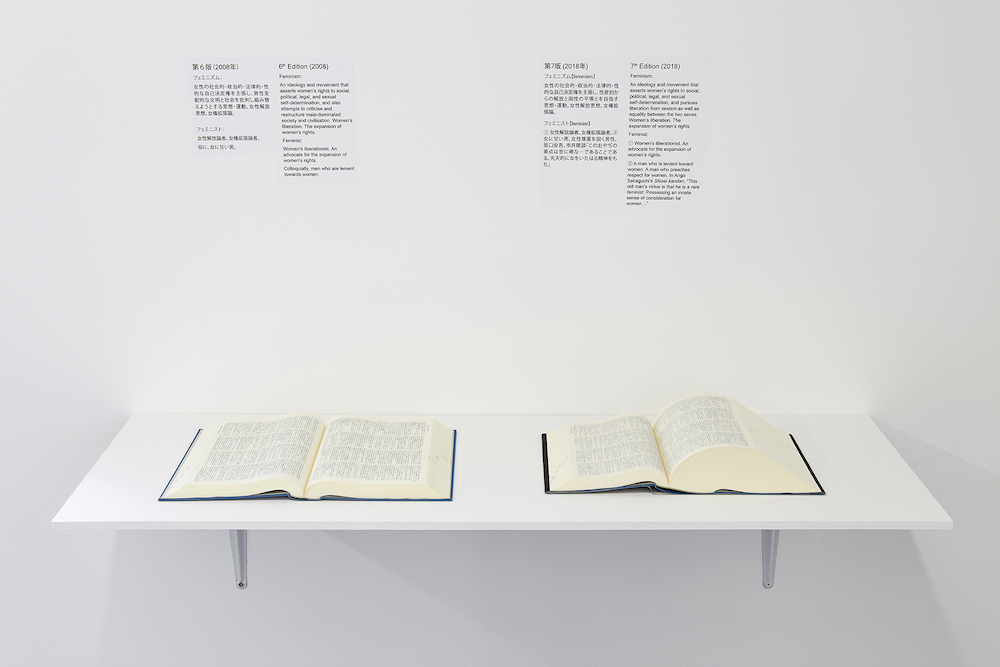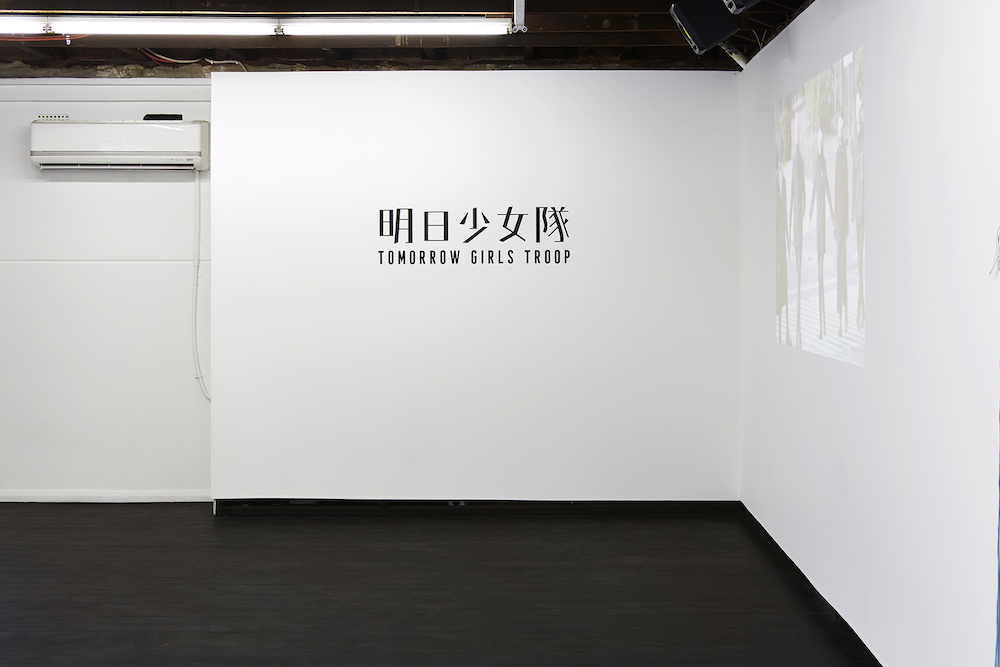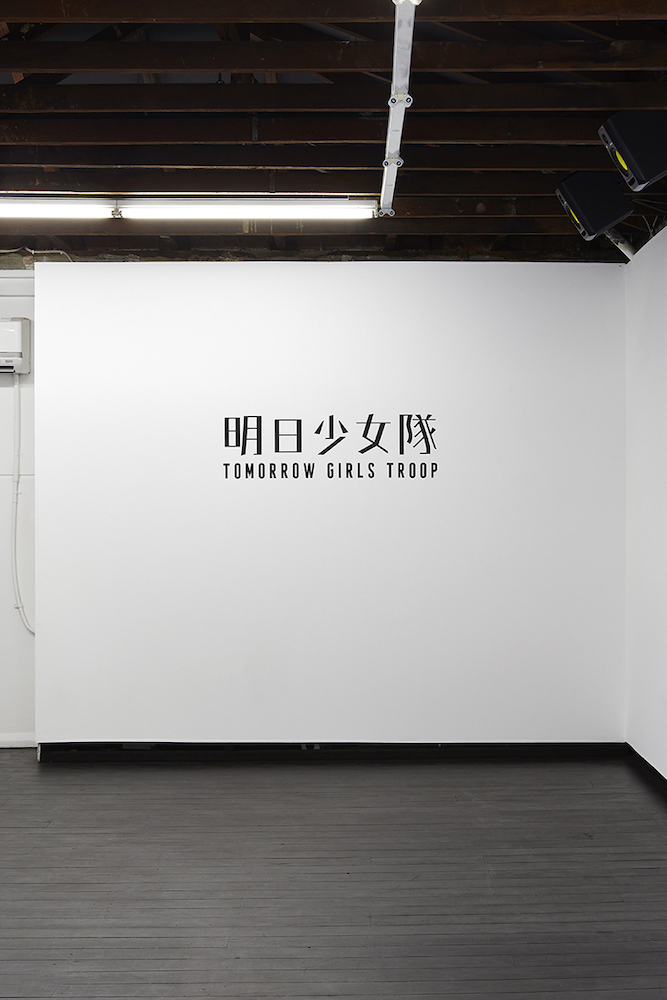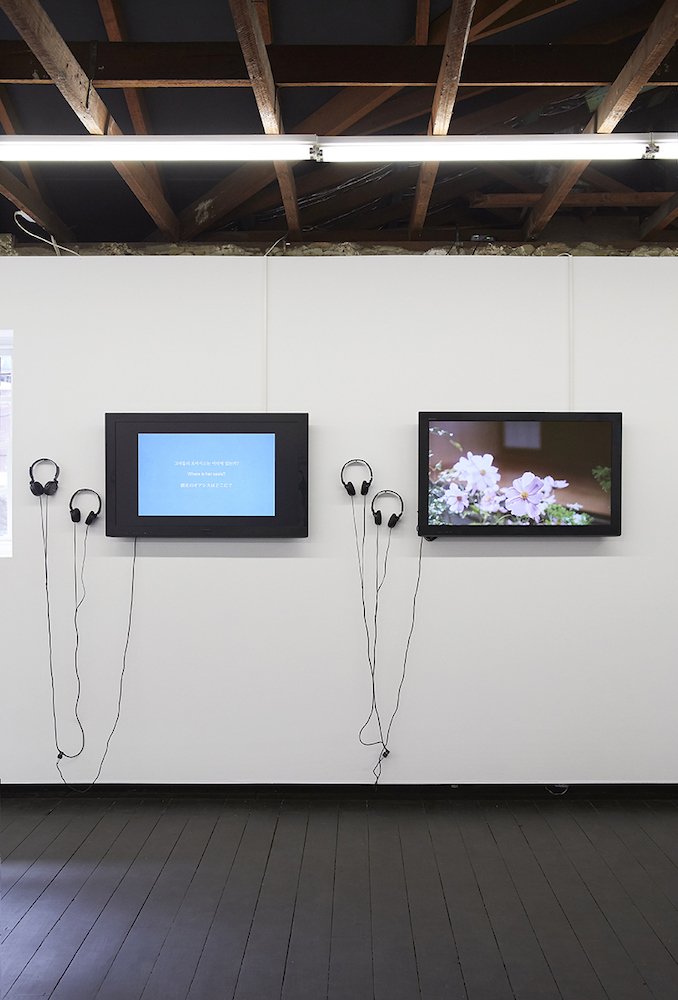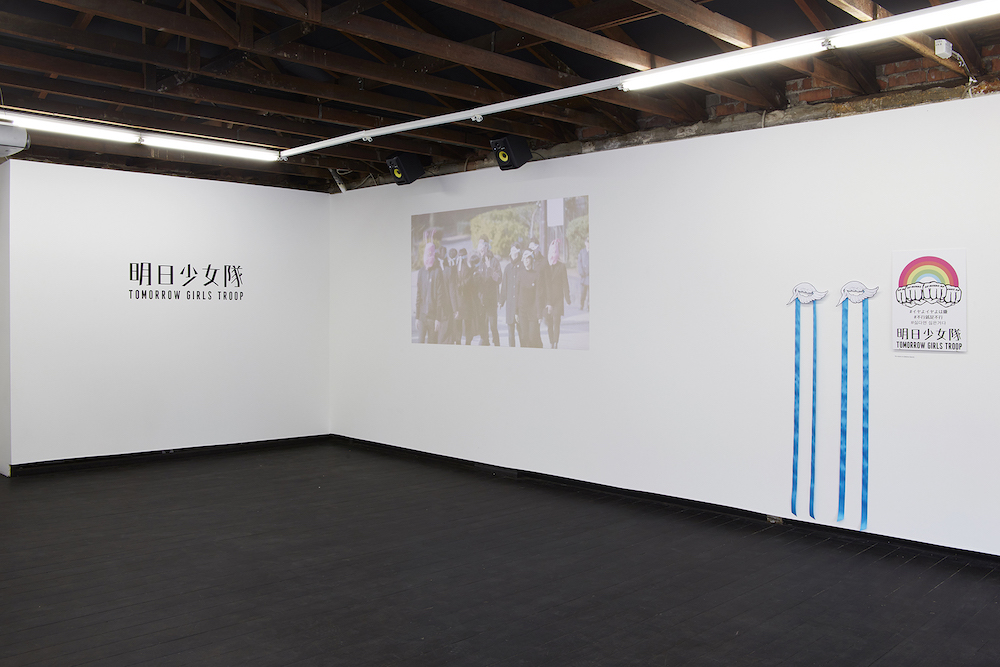Tomorrow Girls Troop
Curated by Alison Groves
Opening 07.03.18 6-8pm
Artist Talks 29.03.18 6-7pm
Ashita Shoujo Tai introduces the new aesthetic of fourth wave feminist art collective, the Tomorrow Girls Troop: the first socially engaged collective of their kind from Japan and Korea.
Using public protest, kawaii and pop culture references, advertising and memes, the Tomorrow Girls Troop topples the dictionary definitions and legislation which invisibly oppress Japanese society. With international membership, their internet-based practice often extends to the parallel inequalities in Korean society and invites foreign audiences to consider these power structures and other ways of approaching feminist dialogues.
The bourgeoning fourth wave nests a new generation of feminist discourse in the ecology of the Internet. In this porous climate, Japan’s first feminist art collective assembled in 2015: Ashita Shōjo Tai (the Tomorrow Girls Troop). The feminist art collective tackles equality by taking elements of the largely western feminist dialogue and building a relatable, yet radical, aesthetic from the (Japanese) familiar. With strong Kruger and Guerrilla Girls references, Tomorrow Girls Troop draws on the kawaii and polished aesthetics of Japanese graphic design, while demanding change.
In the November 2017 World Economic Forum’s Global Gender Gap Report, Japan ranked 114 from a pool of 144 countries, and Korea closely followed at 118. The disparity gauged between the gender equality and socio-economic measures of prosperity is arguably the most extreme in the world: exceptionally high living standards, alongside significant inequality of the sexes.
The recent history of feminism in Japan reflects a culture governed by mass media saturated with conservative gender stereotypes and unable to report on protests and sex-related crime, lacking vocabulary and political action to unite grassroots efforts, and riddled with challenges for queer, non-binary, and trans communities. One of the world’s safest countries has grossly underreported sexual crime and a systemically ingrained patriarchal binary.
Statement From the Artists:
Especially in Japan, feminists were conceived to be too aggressive or theoretical and sometimes misunderstood to be pursuing only women’s favors. One of our primary goals is to break the wall between the mass audience and scholarly feminism in Japan. (Tomorrow Girls Troop, 2016).

